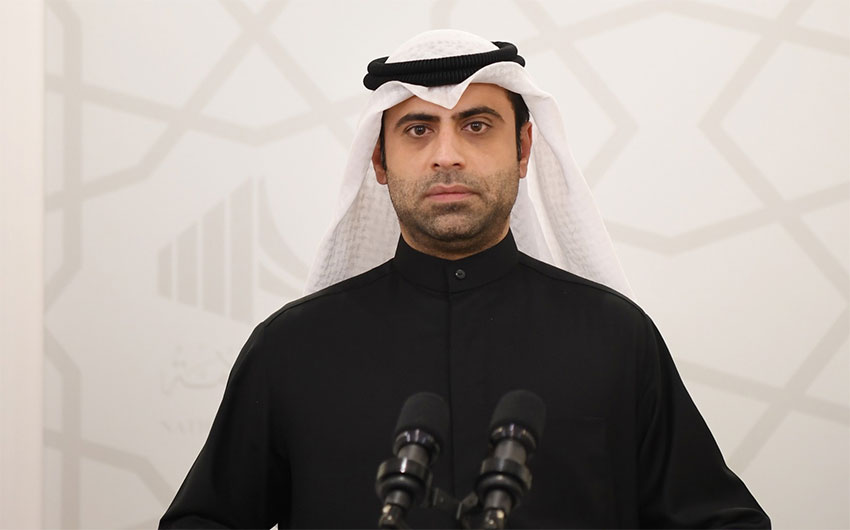28/03/2022
28/03/2022
Int’l Theater Day marked
KUWAIT CITY, March 28: Minister of Information and Culture, Chairman of the National Council for Culture, Arts and Letters (NCCAL), Dr. Hamad Rouhaddeen said on Sunday that supporting and encouraging the artistic and literary creativity movement is part of Kuwait’s development vision ‘New Kuwait 2035’. This came in a speech delivered by Minister Rouhaddeen during the celebration organized by the NCCAL at the S h a m i y a Theater on the occasion of the International Theater Day, which falls on March 27 annually, during which he stressed that the Kuwaiti theater is a race and is at the heart of the event and has always been the beating heart that gives life and hope to the community. He explained that the importance of this annual event lies in creating a spirit of development and creativity at the local and regional levels, as it constitutes an opportunity to raise the spirit of competition between the participating teams to present the best shows in order to develop theatrical artistic awareness and promote theatrical movement in the State of Kuwait.

He noted the “unlimited support provided by the state to the movement of artistic and literary creativity and the continuous encouragement to provide the best for the interest of Kuwait,” adding that activating the role of cultural institutions derived from the directives of the political leadership and with unlimited government support aimed at developing the cultural movement is a clear indication of the leadership’s belief in the importance of literature and culture in establishing a sustainable civilizational renaissance.
Minister Rouhaddeen added that the National Culture Agency is a good follower of theatrical developments and pays great attention to theater and is keen to provide the ingredients for its development due to its importance in enriching literary activity and shedding light on community issues as well as creating a stimulating environment for works with useful content through annual festivals that are active, supports and develops this artistic movement. He called on all those working in the theater industry, including writers, directors, artists and technicians, to strive and elevate this great edifice and select the best works and messages, so that theater becomes a soft force in support of the state and society. For his part, the artist Saad Al-Faraj gave a speech in which he stressed the need for solidarity and joint action in order to advance the theatrical movement and create distinctive artistic and creative spaces that fit the history of Kuwaiti theater.
Al-Faraj described theatrical art as “a large space that needs collaboration and cooperation to present artistic epics of weight that refresh minds, embody history and foresee the future. The theater is one of the most important arts and the first since the days of the Greeks and Romans for its ability to synthesize multiple artistic elements. Kuwait’s knowledge of theater began in 1938 at the hands of professors from the Arab Teachers Mission. The first play from the school theater activities was presented by students of the Mubarakiya School through work of Salem Omar. After that, the theatrical movement took on the official character by summoning the Department of Social Affairs and Labor at that time, the Egyptian actor Zaki Tulaimat, to discuss with him in theatrical affairs with a desire to develop the theatrical movement in Kuwait, who in turn in 1961 formed the Arab theater troupe to form the nucleus of the modern Kuwaiti theater. , (KUNA)


